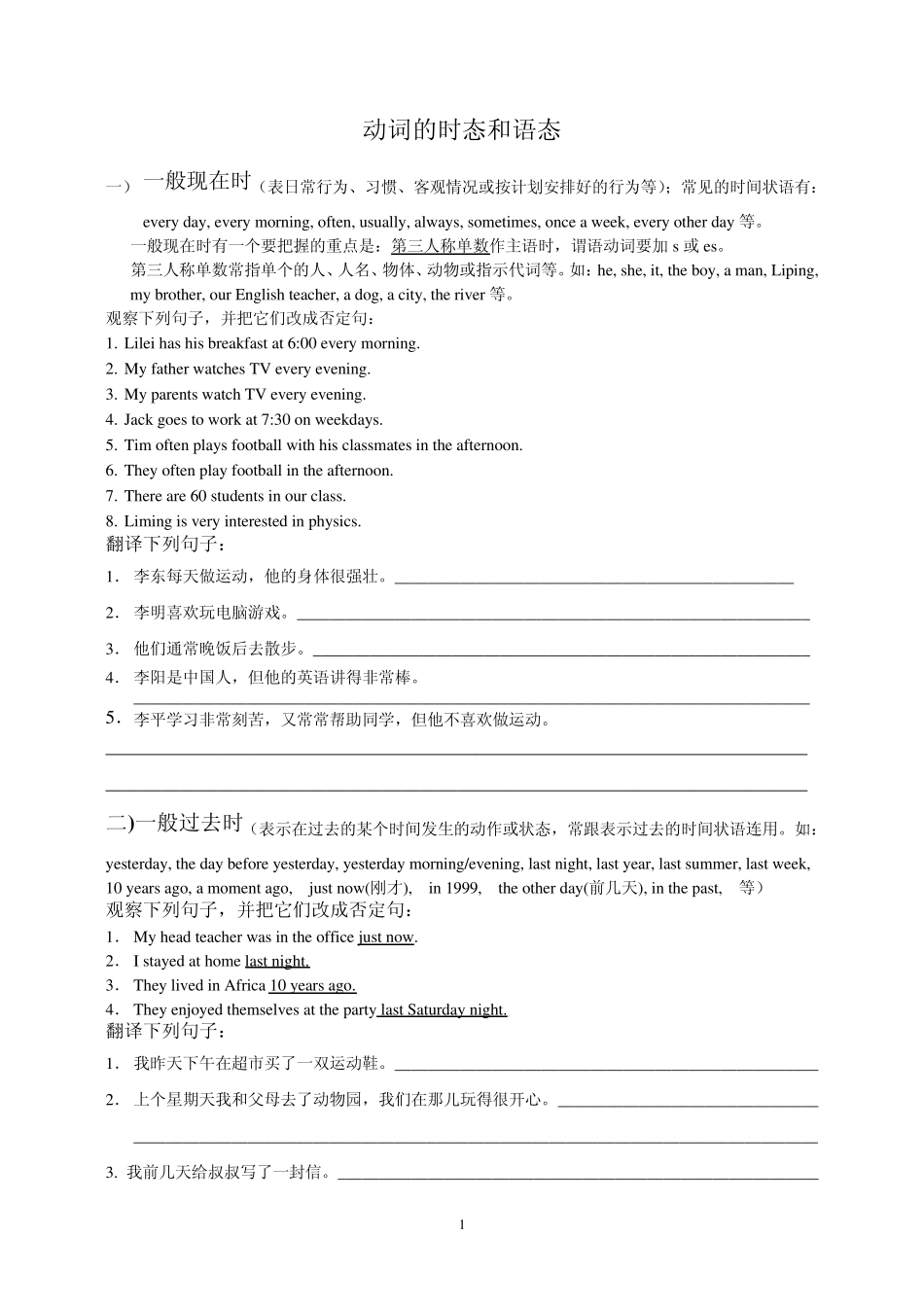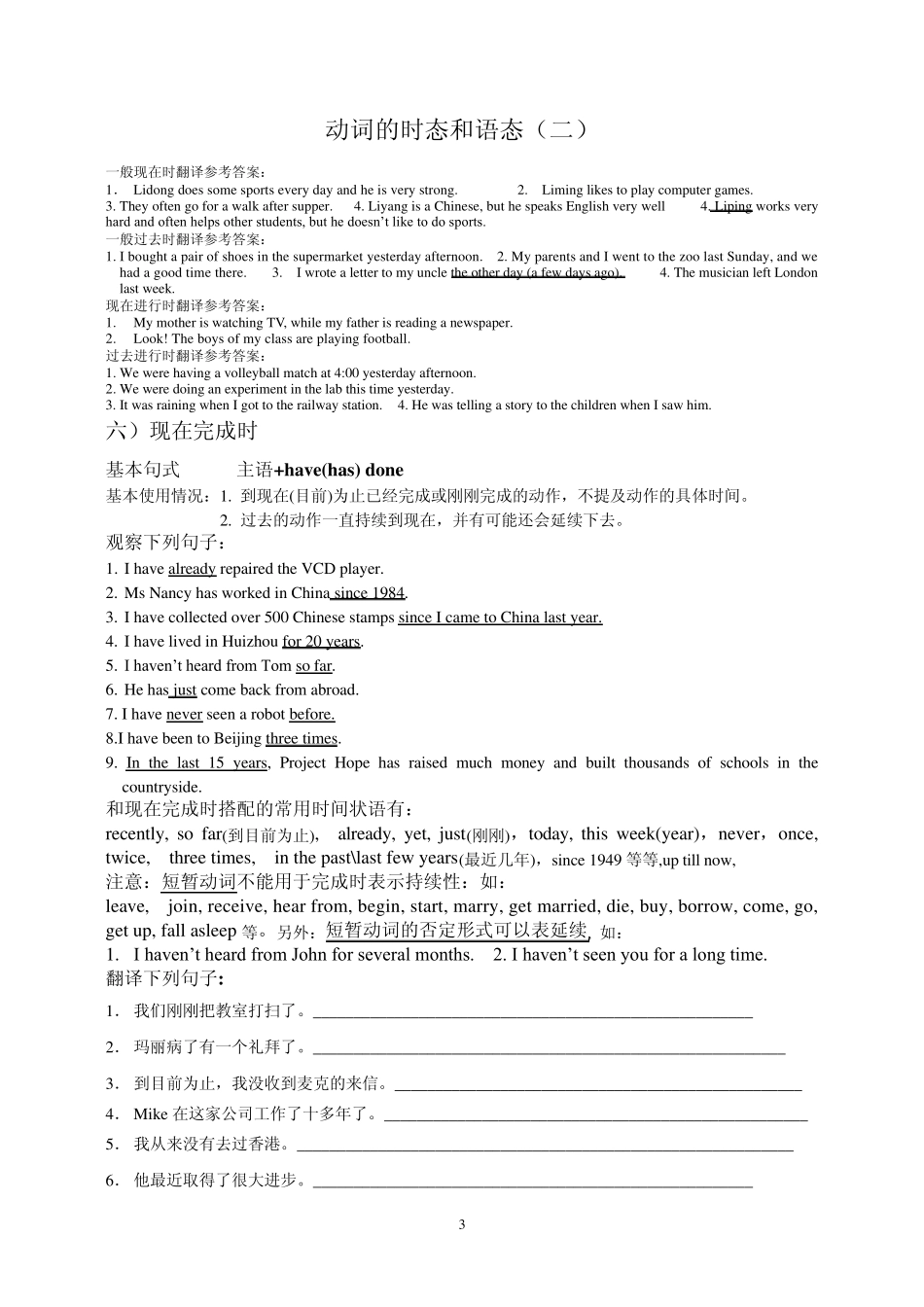1 动词的时态和语态 一) 一般现在时(表日常行为、习惯、客观情况或按计划安排好的行为等);常见的时间状语有:every day, every morning, often, usually, always, sometimes, once a week, every other day等。 一般现在时有一个要把握的重点是:第三人称单数作主语时,谓语动词要加 s 或 es。 第三人称单数常指单个的人、人名、物体、动物或指示代词等。如:he, she, it, the boy, a man, Liping, my brother, our English teacher, a dog, a city, the river 等。 观察下列句子,并把它们改成否定句: 1. Lilei has his breakfast at 6:00 every morning. 2. My father watches TV every evening. 3. My parents watch TV every evening. 4. Jack goes to work at 7:30 on weekdays. 5. Tim often plays football with his classmates in the afternoon. 6. They often play football in the afternoon. 7. There are 60 students in our class. 8. Liming is very interested in physics. 翻译下列句子: 1. 李东每天做运动,他的身体很强壮。_________________________________________________ 2. 李明喜欢玩电脑游戏。_______________________________________________________________ 3. 他们通常晚饭后去散步。_____________________________________________________________ 4. 李阳是中国人,但他的英语讲得非常棒。 ___________________________________________________________________________________ 5.李平学习非常刻苦,又常常帮助同学,但他不喜欢做运动。 ____________________________________________________________________________ ____________________________________________________________________________ 二)一般过去时(表示在过去的某个时间发生的动作或状态,常跟表示过去的时间状语连用。如:yesterday, the day before yesterday, yesterday morning/evening, last night, last year, last summer, last week, 10 years ago, a moment ago, just now(刚才), in 1999, the other day(前几天), in the past, 等) 观察下列句子,并把它们改成否定句: 1. My head teacher was in the office just now. 2. I stayed...


